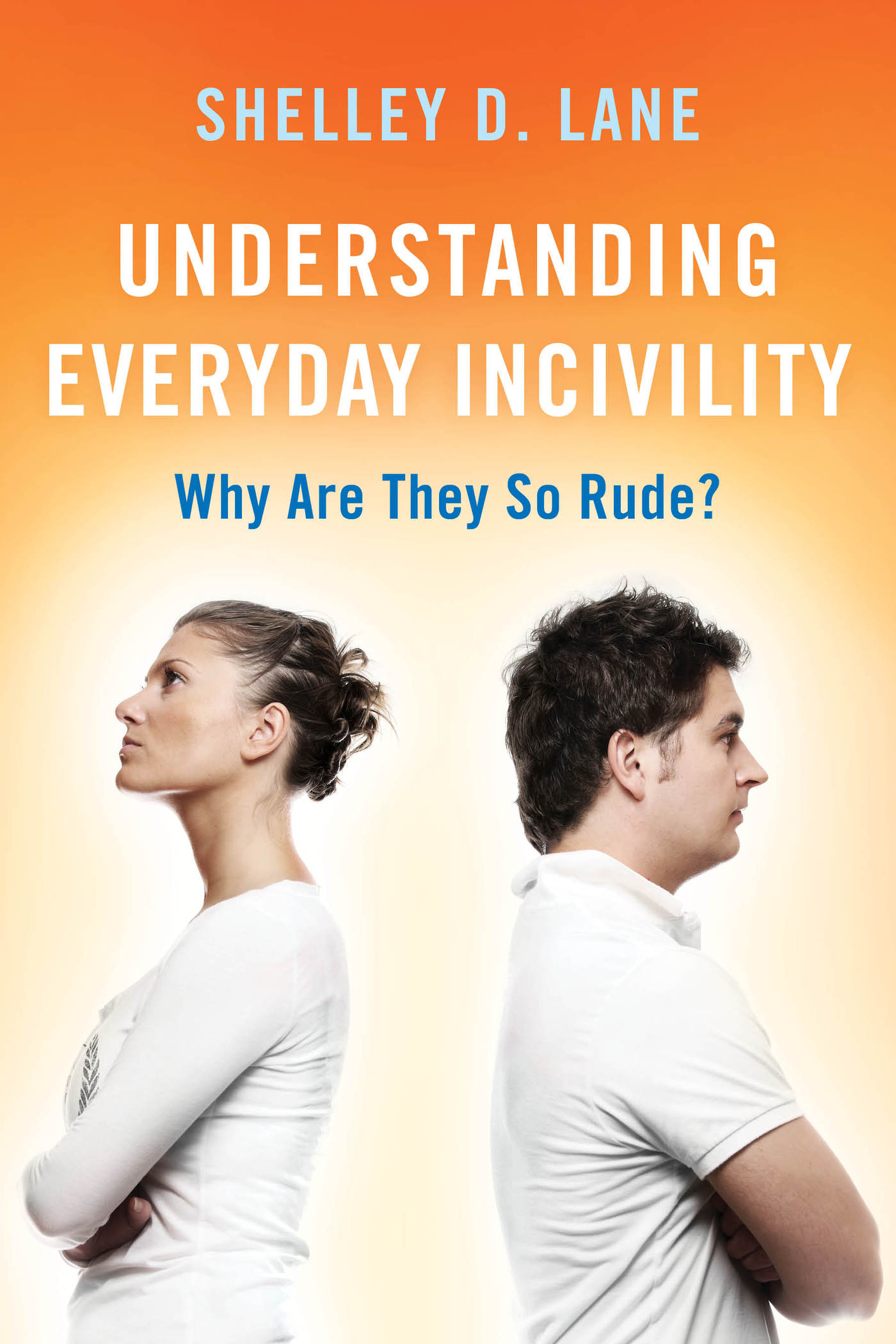Praise for
Understanding Everyday Incivility
Shelley Lane frames a theoretical why for civility as she acknowledges increasing cases of incivility in the public domain. Her work outlines a basic presupposition: people must be heard, not dismissed by pejorative statements. She reclaims civility as a pragmatic democratic foundation in this historical moment.
Ronald C. Arnett, Duquesne University; author of Levinass Rhetorical Demand: The Unending Obligation of Communication Ethics
Understanding Everyday Incivility offers a thorough, informed, and readable examination of the many forms that incivility can take and the various contexts in which it occurs. Lanes numerous thought-provoking examples of behavior that might be labeled uncivil keep her analyses concrete and relevant to contemporary life. Her strategies for promoting civility are both sensible and timely.
Emrys Westacott, Alfred University
Meticulously researched and written with lucidity, this book provides deep insights into our civility crisis. Rather than prescribe a set of rules, Lane explains what we need to consider if we are to build a truly lasting civility. A gem of a book that ranks with the best literature on civility.
Benet Davetian, University of Prince Edward Island;
author of Civility: A Cultural History
Understanding Everyday Incivility
Why Are They So Rude?
Shelley D. Lane
ROWMAN & LITTLEFIELD
Lanham Boulder New York London
Published by Rowman & Littlefield
A wholly owned subsidiary of
The Rowman & Littlefield Publishing Group, Inc.
4501 Forbes Boulevard, Suite 200, Lanham, Maryland 20706
https://rowman.com
Unit A, Whitacre Mews, 26-34 Stannary Street, London SE11 4AB,
United Kingdom
Copyright 2017 by Rowman & Littlefield
All rights reserved. No part of this book may be reproduced in any form or by any electronic or mechanical means, including information storage and retrieval systems, without written permission from the publisher, except by a reviewer who may quote passages in a review.
British Library Cataloguing in Publication Information Available
Library of Congress Cataloging-in-Publication Data
Names: Lane, Shelley D., author.
Title: Understanding everyday incivility: why are they so rude? / Shelley D. Lane.
Description: Lanham : Rowman & Littlefield, a wholly owned subsidiary of The Rowman & Littlefield Publishing Group, Inc., [2017] | Includes bibliographical references and index. |
Identifiers: LCCN 2017006080 (print) | LCCN 2017024284 (ebook) | ISBN 9781442261860 (electronic) | ISBN 9781442261853 (cloth : alk. paper)
Subjects: LCSH: Courtesy.
Classification: LCC BJ1533.C9 (ebook) | LCC BJ1533.C9 L35 2017 (print) | DDC 177/.1dc23
LC record available at https://lccn.loc.gov/2017006080
 TM The paper used in this publication meets the minimum requirements of American National Standard for Information Sciences Permanence of Paper for Printed Library Materials, ANSI/NISO Z39.48-1992.
TM The paper used in this publication meets the minimum requirements of American National Standard for Information Sciences Permanence of Paper for Printed Library Materials, ANSI/NISO Z39.48-1992.
Printed in the United States of America
To my father, Simon M. Lane, D.P.M., M.S.Ed. (19242017), a podiatrist, college dean, interim university president, risk management specialist, professor, author, amateur historian, community organizer, and most importantly, loving father, who was a model of civility.
Preface
I write this preface only four days before president-elect Donald Trumps inauguration and after what may be described as one of the most divisive and uncivil campaign seasons in our nations history. While American presidential campaigns have been noted for acrimony since our countrys inception, the overwhelming amount of incivility in the 2016 election and the speed at which it was disseminated is unprecedented. Politics aside, President Trumps campaign included too many examples of uncivil words and behavior to include in this preface. Trump began the road to the White House by naming his opponents Lying Ted, Crooked Hillary, Little Marco, Crazy Bernie, and Low-Energy Jeb. He labeled Mexican immigrants criminals and rapists, and at one point, called for a blanket ban on Muslim immigration (but later suggested that Muslim immigrants be identified in an official registry). Trump retweeted comments made by white supremacists and disparaged congressman John Lewis, an icon in the civil rights movement, as a man of all talk and no action. Trump also acknowledged that he had assaulted women by grabbing them by the psy. He mocked a disabled reporter; stated that Senator John McCain is not a war hero because he was captured; and alleged that his long and beautiful fingers are similar to his sex organ.
The 2016 campaign is notable not only for the rapid dispersal of uncivil rhetoric (thanks to Trumps use of Twitter and social media in general), but also for the political incivility that is influencing our everyday encounters throughout the United States. Approximately 879 real-world (i.e., non
digital) hate incidents were reported to the Southern Poverty Law Center just ten days after the election. The Council on American-Islamic Relations also experienced an escalation in hate incident reportsan increase greater than those that happened immediately after the 9/11 attacks. While most hate-related situations and uncivil behaviors occurred on sidewalks and streets, colleges and universities experienced an increase in uncivil acts, many of which were directly tied to Trump. A Trump sign with a swastika drawn over it was left near the Hillel office at the University of Virginia. The name Trump was written on the door to a Muslim prayer room at New York University. A Marshall University student tweeted that As soon as Trump hits 270 electoral votes I am grabbing the first girl I see by the psy. #MAGA (this hashtag was used by Trump supporters and is the acronym of Make America Great Again, Trumps campaign slogan). Even more disheartening is the uncivil campaign rhetoric that has made its way into K12 classrooms. Teachers have reported an increase in bullying behaviors and children, who are American citizens, cry at their desks in fear that they and their families will be deported. The slogan Black Lives Suck has been scrawled on high school bathrooms and benches, and Latino children have been taunted by students who shout, Build the wall!
It is important, now more than ever, to understand everyday incivility, its causes and consequences, and the need to promote civil communication. Everyday incivility is a destructive force that results in psychological, emotional, and even physical harms. But just as words can threaten, offend, and obfuscate, they can also be used to comfort, clarify, and remind us that were all human beings who deserve to be treated with respect. I feel uplifted when I remind myself of the Seattle mother who started the Facebook group, Dear President Trump: Letters from Kids about Kindness. One six-year-old girl wrote a letter in which she advised: Be nice to things. Do not say mean things.... Good luck with your new job! Let me know if I can help. Another six-year-old wrote: Dear Mr. Trump, Kids in my class are very scared. Please dont kick them out. In my school we get sent to the wall when were in trouble. My friends did not do anything wrong.
I am also hopeful when I recall that Justin Normand, looking like the quintessential Texan in a cowboy hat, checkered shirt, and cowboy boots, stood in front of a local mosque and held a sign that urged Muslims to stay strong because we are all Americans. Normands intent was to show support for the local Muslim community and counter President Trumps anti-Muslim comments. I am similarly hopeful when I read about UT Austin student Amina Amdeen, a
Next page
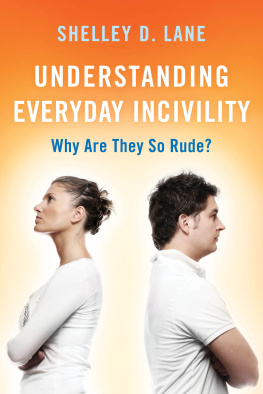
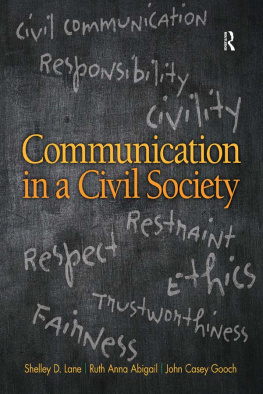



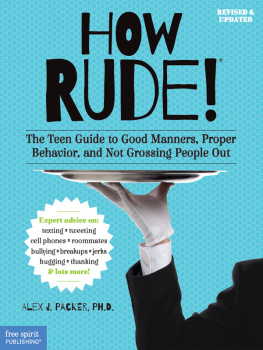
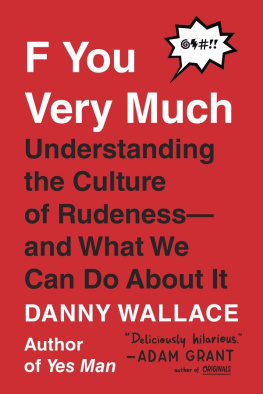

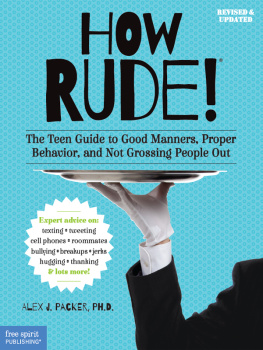
 TM The paper used in this publication meets the minimum requirements of American National Standard for Information Sciences Permanence of Paper for Printed Library Materials, ANSI/NISO Z39.48-1992.
TM The paper used in this publication meets the minimum requirements of American National Standard for Information Sciences Permanence of Paper for Printed Library Materials, ANSI/NISO Z39.48-1992.